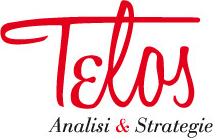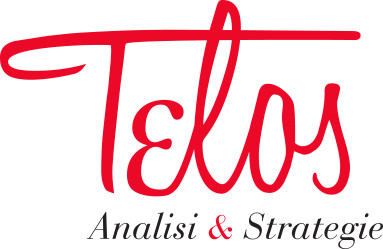October 2018, Year X, no. 10
Theodoros Koutroubas
What can lobbyists really do
"It is only the elected representatives of the people and nobody else, that have the power to accept or reject legislative proposals and any other governance-related document. These elected representatives, not the lobbyists, will be judged by the people at the end of their mandate on the basis of the good or bad decisions they have taken."
Telos: How would you define lobbying?
Theodoros Koutroubas: The word lobbying comes probably from the main hall, the "lobby", of the Houses of Parliament in London, where persons from all the provinces of the UK were gathering to meet their local parliamentarians and to inform them of issues of importance from their constituencies, that would necessitate action and decisions from the Parliament and the central government.
In the context of participative democracies of today, citizens are not just a silent "subject" of some new kind of elected monarchs, who grant them the right to decide about the great lines of the nation’s governance only once every four or five years, at the official occasion related to the renewal or not of their regal mandates. On the contrary, our current laws allow citizens to associate around: a) causes that they deem worth promoting, b) professions they exercise and wish to further develop and valorise or c) different other issues relating to their everyday lives. Obviously, the objective of these associations is to inform the elected representatives of the people about their constitutive causes and to persuade them to act in their favour.
It is important to make clear here that the power of decision in such a system remains completely in the hands of the elected representative, who, after listening to all arguments and gathering sufficient information from all sides, has the final word.
Companies and the corporate sector in general are also natural stakeholders for all legislative projects and other government decisions that could directly or indirectly influence their activities. They have thus the legitimate right to be heard by the elected legislators and the competent government officials.
It goes without saying that "informing" and "trying to persuade" are synonyms to "influencing". The word has been demonised and became almost synonymous to "corrupting". This is however a completely erroneous conception. Corruption is and has always been a disloyal and condemnable attitude for both the corruptor and the corrupted, punishable by law in almost every country and by almost every political regime. Most of those who work in the field of interest representation would agree that ever stricter legislation and other measures should be adopted in order to eliminate this phenomenon.
We could thus define Lobbying as the legitimate and in fact essential and inalienable right of citizens to associate in order to promote objectives, ideas or professional interests they have in common and to interact with their elected representatives and the officials of their government in the context of this interest promotion. When interacting with the elected ones or with the officials of the State in order to promote interests, citizens have the right to use all legally acceptable means at their disposal, including going on strike or peacefully protesting in public.
"I took a decision in the very first week of this mandate not to meet with lobbyists" Margrethe Vestager said in response to a reporter’s question about whether she would meet the former President of the European Commission, Barroso, who now holds a senior job at Goldman Sachs. What is your view on this statement?
This was not the first time Commissioner Vestager has spoken against lobbyists. Last year she has declared that she had decided, since a long time, not to meet with lobbyists, because she "needs to meet the real decision-makers and these are not the lobbyists". At that time I have published an article in the French-speaking Belgian newspaper "La Libre", arguing that the dialogue between those who are governing and those who wish to bring an input to one or more decisions of the government, the lobbyists, is an essential component of our democracies and this because their participation in the process of decision-making allows both the elected legislators and the officers of the government to make their decisions in a fully informed way, whilst at the same time it reinforces the legitimacy of the whole political system. I strongly believe that closing the doors of the decision-making system to representatives of legitimate interests would bring us back to the time of all-powerful politicians who were behaving as elected absolute monarchs during the four or five years of their mandate. Obviously, the Barroso case has damaged a lot the credibility of the European Commission and indeed of the European Union. I personally think that the way the Commission handled the issue was totally inappropriate. Instead of underlining that the decision of its former President was very wrong from an ethical point of view, despite the fact that the current legislation allowed it, the Commission stood strictly by the letter of the law. It is not the first time the Commission’s communication makes things worse…unfortunately very often those who work for the different "exits" are less efficient than the Commission itself when it comes to raising the number of Euro-sceptics.
Is lobbying only a matter of transparency, or is there more about it?
Transparency is naturally very important when it comes to interest representation. It is said very correctly that the wife of Cesar should not just be honest, she should also credibly give the impression to everyone that she is honest. Lobbying is of course not only about transparency, it is about information sharing, negotiation skills, legitimate representation, believing in a cause. Lobbyists, volunteers or professionals, represent those who have mandated them to bring their views in front of decision makers and to try to persuade the later on the validity of these views. They must combine the skills of a pedagogist with those of an expert in politics and they must have themselves an immense faith in the cause they represent. It is often said or written that lobbying is about money, those who have the most are able to set up better campaigns of persuasion, hire better professional lobbyists, and thus win over the public opinion and the politicians to their cause. It can sometimes be true but it is by no means the rule! Remember the situation regarding the rights of gays and lesbians twenty years ago. In most western countries, homosexuality was still a crime or a mental illness. Lobbying for the gay cause had certainly much less money and social acceptance than the Church and the conservative organisations around the Church. Yet the latter lost the battle. Remember the tobacco issue! Everybody was smoking in Europe 30 years ago. Forbidding smoking in public places was unthinkable and tobacco companies were much more powerful and wealthy than the few "health-obsessed" anti-tobacco lobbyists……today this is another battle lost by the Goliaths of this world.
"It’s all lobbies’ fault". Regulating lobbying is a mantra in the Italian political debate. However, the only outcomes of such efforts are a few quite disappointing "registers for lobbyists". Moreover, politicians try to look at what other countries, or the EU, do to regulate this activity, without considering that the decision-making process, and the access to it, differs dramatically from one country to the other. What wold you suggest to an Italian lawmaker as a sound approach to draft a sensible regulation?
There are Italian associations who are conducting transparent and very successful lobbying activities both within Italy and at the European level, such as for example Confprofessioni, the body who represents all the liberal professions that base their exercise on ethical codes. Their practices could inspire others and probably entering in a formal and objective-oriented dialogue with the organised civil society and the corporate world - possibly via the CNEL? - could be a good way forward. Registration is a good practice, there must be an official list of the associations and corporations that wish to interact with the Parliament and the government’s officials, but it does not solve all the problems. Italian lawmakers should be first and foremost inspired by Italian realities when regulating interest representation. This does not mean that studying examples of good practice abroad is wrong. Copying laws from abroad without taking into consideration the realities of the field is wrong and doesn’t work. As for "its all the lobbies’ fault": It is only the elected representatives of the people and nobody else, that have the power to accept or reject legislative proposals and any other governance-related document. These elected representatives, not the lobbyists, will be judged by the people at the end of their mandate on the basis of the good or bad decisions they have taken.
Marco Sonsini
Editorial
If you really think about it, without lobbying, considering everything that goes along with “informing and persuading” the system of public decision-makers, representative democracy as we know it wouldn’t even exist. However, it still seems to be is the best form of State political organisation (or the least terrible, according to varying points of view) that humanity has managed to come up with.
I continue to disagree that lobbying is persuasion and insist, almost to
the point of being stubborn, that lobbying is representing a position.
And the essence of lobbying lies precisely in this word “representing”, around which revolve not only its fundamental principle, but also the very concrete daily application of democratic processes.
In other words, if society is the place of interests, of which there are many and at times also contrasting, and the institutions are instead the places of public decision-making invested with the role of responding to society’s requests, the people who collect these interests and represent them before decision-makers (i.e. lobbyists) are at least one of the mechanisms in this process that, by mediating between pushing and needs that are different from one another, generates decisions capable of impacting each of our lives.
In other words, and I’d like to stress this: providing a voice to the needs of people, companies and organisations in order to contribute to government action. In the end, lobbying is nothing more than this.
This is a good starting point to begin understanding what we are talking about. However, if we wish to interpret lobbying in such broad terms, we run the risk of ending up saying that if everything is lobbying, nothing is lobbying.
Like, for instance, the large-scale campaign for a universal ban on the death penalty, which in 2007 led the UN General Assembly to vote to abolish capital punishment. This is not lobbying. Or like the residents of a neighbourhood in the outskirts of a city forced to live amidst urban decay, who come together to seek answers from the municipal administration. This is not lobbying. Organising an initiative whose ultimate goal is to inform decision-makers of an important problem and pushing them to take action is not enough.So I would like to point out one of characteristic features of lobbying: lobbying is representing before the Institutions one’s own point of view, one’s own proposals, whenever critical situations arise that are caused (and therefore may be resolved) by laws or regulations.
What is more, lobbying is a form of participation that enables on-going interaction with the institutions, not just periodic interaction limited, namely, to rounds of elections or referenda. The concrete result is that each political process assumes greater legitimacy, as argued by Prof Theodoros Koutroubas, who PRIMOPIANOSCALAc has interviewed for its October issue.
A professor of political science in Leuven, researcher and author of numerous publications on the representation of interests and participatory democracy, but above all, a lobbyist: in fact, he is the general director of CEPLIS, the European organisation that represents the needs of liberal professionals.
Prof. Koutroubas combines teaching and academic research theory with the
practice of representing interests and taking action aimed at Institutions to contribute to decision-making processes on those matters.
So who better that he to provide us with an answer to the question of what lobbying (really) is.
The answer, which is in some ways surprising, is that lobbying is, first and foremost, a right. And if you really think about it, it cannot be anything but a right, the right of citizens, of any degree or rank, to usher their requests where decisions that are valid for all are taken.
The right to contribute.
Mariella Palazzolo

Theodoros Koutroubas is a Political Science Professor, of the Faculty of Economic, Social and Political Sciences and Communication, at the Catholic University of Louvain (UCLouvain) in Belgium. He is also the Director General and Senior Policy Advisor of the European Council of the Liberal Professions (CEPLIS). He holds a PhD in Political Science and International Relations from the UCLouvain. He has studied philosophy and languages in Athens and Bordeaux, and holds degrees in European and International Politics from Athens and Louvain. He has worked as project manager and policy adviser with several European NGOs, whilst being actively involved in academic research. He has also served as visiting professor at the University of Montréal (UdeM) and continues to work with this University. Theodoros' publication include subjects such as interest representation, participative democracy, lobbying, relations between State and organised religion. In 2011, together with Marc Lits, he published "Communication politique et lobbying". His passions include travelling, collecting absolutely useless objects that make his apartment look like a museum of curious things with no connection between them, reading anything that can fall on his hands and supporting local Brussels economy by eating out several times per day. He visits India several times per year in order to get inspiration and to find his less carnivorous side, though for the moment he has lamentably failed on this last task. He defines himself a bit of an overweight dandy, his favourite city in Italy is Florence, elegant, artsy and a tiny bit snob.
Marco Sonsini







SocialTelos